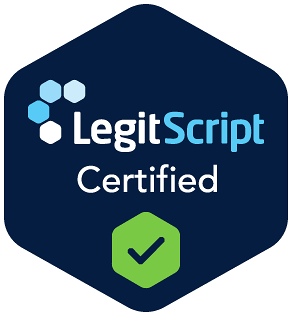The 2013 updated version of the Diagnostic and Statistical Manual of Mental Disorders (DSM) reclassified two previously separate issues—alcohol dependence and alcohol abuse—into one diagnosis, termed Alcohol Use Disorder (AUD). With all of the technical jargon, information, and misinformation on the Web in relation to this subject, one may find themselves wondering what is the difference between AUD and alcoholism, or if there is really any difference at all?
Defining Alcohol Use Disorder
AUD, or Alcohol Use Disorder, is broken down into three subsections: mild, moderate, and severe. If one presents with a certain number of 11 selected symptoms, they will then be diagnosed at the correlating level of AUD. The symptoms are as follows:
- Drinking more or for a longer period of time than intended.
- Feeling incapable of cutting back on the amount of alcohol consumed.
- Becoming sick for an extended period of time as a result of drinking too much.
- Inability to concentrate due to alcohol cravings.
- Inability to care for a family, hold down a job, or perform in school.
- Continuing to drink despite problems caused with friends or family.
- Decreased participation in activities which were once important.
- Finding oneself in dangerous or harmful situations as a direct result of drinking.
- Continuing to drink despite adding to another health problem, feeling depressed or anxious or blacking out.
- Drinking more as a result of a tolerance to alcohol.
- Experiencing withdrawal symptoms.
*Mild: Two to three symptoms
**Moderate: Four to five symptoms
***Severe: Six or more symptoms
Alcohol and Recovery
If a person has an AUD, their drinking has become a problem. Alcohol is a highly addictive substance, and anyone can develop an addiction. No matter what your family history is, no matter your genetic makeup, your social status, or any other factor.
Treatment options abound for those suffering from an AUD diagnosis or self-proclaimed alcoholics. With so many addiction treatment services, rehabilitation facilities, and therapies, just finding the right help can initiate stress triggers which can drive one to want to wet their lips with a nerve-settling spirit. In the face of these coping mechanisms, one might consider the startling revelation in 2015 when 15.1 million adults (over the age of 18) had been diagnosed with AUD in some form.
Alcohol Use Disorder, like any addiction, is a chronic disease of the brain. There are a number of factors that contribute to its onset, but there is only one solution: reaching out for help.
The Deeper Strength
Seeking help for an addiction is seen as a sign of strength and readiness to enhance not only the drinker’s quality of life, but that of those around them as well. It’s a choice for health and wellness. This choice is one for life over death. It’s a choice to finally take life seriously and begin to take back the reigns that have been recklessly given over to a substance that will ultimately bring you to ruin.
If you or someone you love are on the spectrum of alcohol use disorder, its imperative to get help for detox and rehab treatment right away. SoCal Detox is a premier addiction treatment center in Orange County, California. Our team of professionals will guide you through the entire process with compassion, care, and individualized treatment.
If you are looking for a place to safely detox and find hope for the future, please call us today for your free consultation. Call now: 888-590-0777.





